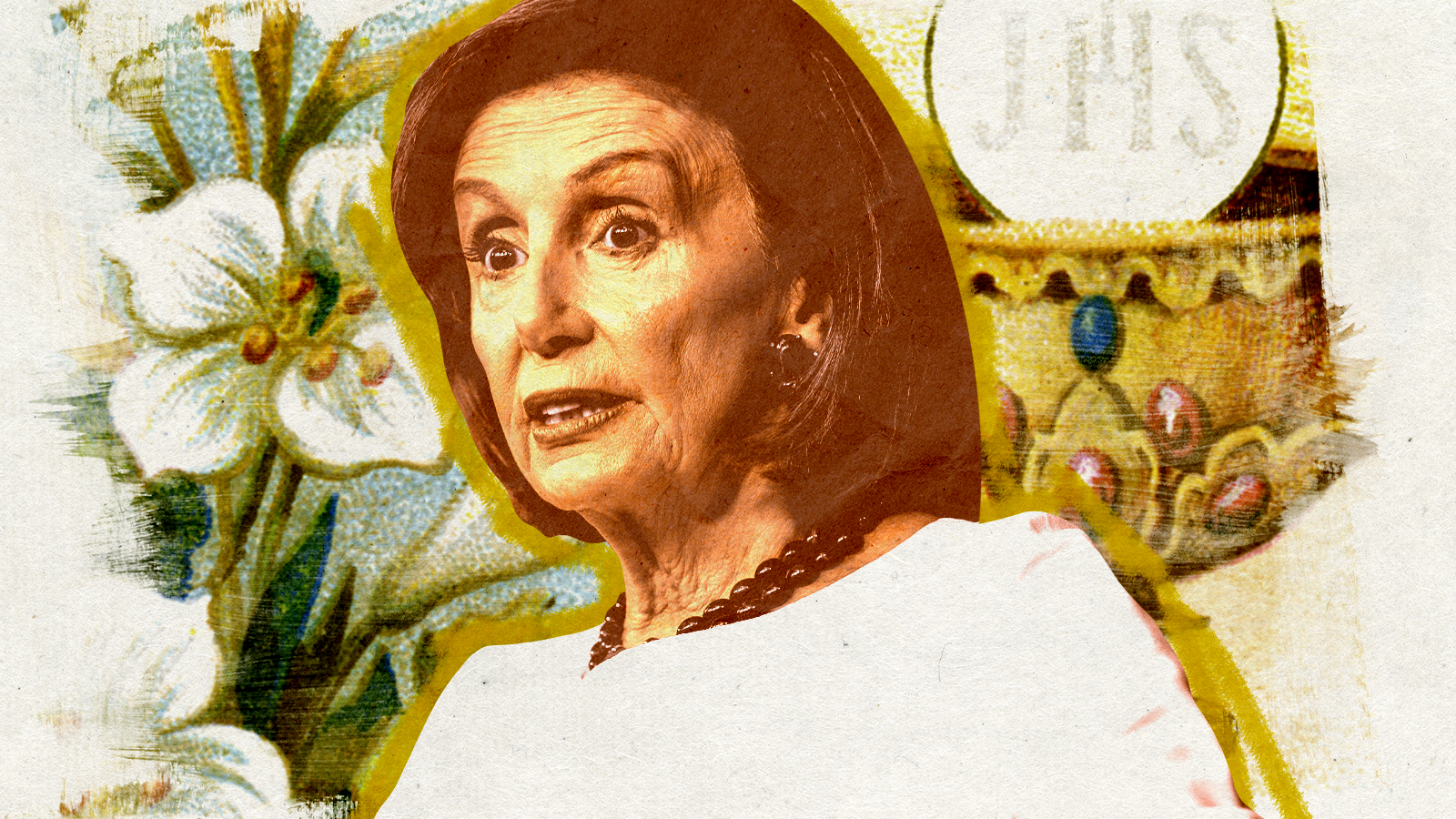Who should decide religious doctrine, Twitter or the church?


A free daily email with the biggest news stories of the day – and the best features from TheWeek.com
You are now subscribed
Your newsletter sign-up was successful
When a Catholic archbishop in San Francisco decided to withhold Communion from House Speaker Nancy Pelosi (D-Calif.) because of her support for legal abortion, there were some strange responses.
Twitter was filled with comments about this supposed breach of the separation of church and state, along with calls to tax churches. Noted theologian Whoopi Goldberg opined for The View's audience that "this is not your job, dude. That is not up to you to make that decision."
Who, pray tell (assuming the word "pray" doesn't violate separation of church and state), makes these decisions for the church? Politicians? Individuals, who are free to join other churches with doctrines more to their liking, or no religious body at all?
The Week
Escape your echo chamber. Get the facts behind the news, plus analysis from multiple perspectives.

Sign up for The Week's Free Newsletters
From our morning news briefing to a weekly Good News Newsletter, get the best of The Week delivered directly to your inbox.
From our morning news briefing to a weekly Good News Newsletter, get the best of The Week delivered directly to your inbox.
None of this reaction is the result of the Catholic Church favoring legal protection for unborn children against abortion as a matter of public policy and social justice — it does — but because religious authority figures exercised their judgment about participation in a private ritual, in which many of the detractors do not believe, in a nongovernmental setting.
It would seem unsporting to dunk on random Twitter users and marginally political celebrities for confused hot takes. But then The Associated Press had this post on a Christian academic institution's policies: "A private Christian university is considering strictly limiting the free speech rights of its students when it comes to sexuality and gender, from how they behave to what they wear and what they can say on campus or online, according to published reports."
Such restrictions have been fairly common at religious schools throughout the history of the country. Today attending these places is entirely voluntary. Secular, state-run institutions directly supported with taxpayer funds can also be said to have orthodoxies and rules "when it comes to sexuality and gender, from how" students "behave to what they wear and what they can say on campus or online."
There are profound policy and political differences driven by religion in America. But it's also true that a relatively crimped understanding of religious liberty is gaining traction as people who don't know much about religion want to tell these institutions how to govern themselves, citing concepts that have traditionally been used to support religious freedom.
A free daily email with the biggest news stories of the day – and the best features from TheWeek.com
This is completely backwards. And it actually encourages illiberal traditionalist trends. If someone's values ultimately have to prevail, it may be asked, why not mine?
W. James Antle III is the politics editor of the Washington Examiner, the former editor of The American Conservative, and author of Devouring Freedom: Can Big Government Ever Be Stopped?.
-
 Local elections 2026: where are they and who is expected to win?
Local elections 2026: where are they and who is expected to win?The Explainer Labour is braced for heavy losses and U-turn on postponing some council elections hasn’t helped the party’s prospects
-
 6 of the world’s most accessible destinations
6 of the world’s most accessible destinationsThe Week Recommends Experience all of Berlin, Singapore and Sydney
-
 How the FCC’s ‘equal time’ rule works
How the FCC’s ‘equal time’ rule worksIn the Spotlight The law is at the heart of the Colbert-CBS conflict
-
 Big-time money squabbles: the conflict over California’s proposed billionaire tax
Big-time money squabbles: the conflict over California’s proposed billionaire taxTalking Points Californians worth more than $1.1 billion would pay a one-time 5% tax
-
 Did Alex Pretti’s killing open a GOP rift on guns?
Did Alex Pretti’s killing open a GOP rift on guns?Talking Points Second Amendment groups push back on the White House narrative
-
 Washington grapples with ICE’s growing footprint — and future
Washington grapples with ICE’s growing footprint — and futureTALKING POINTS The deadly provocations of federal officers in Minnesota have put ICE back in the national spotlight
-
 Trump’s Greenland ambitions push NATO to the edge
Trump’s Greenland ambitions push NATO to the edgeTalking Points The military alliance is facing its worst-ever crisis
-
 Why is Trump threatening defense firms?
Why is Trump threatening defense firms?Talking Points CEO pay and stock buybacks will be restricted
-
 The billionaires’ wealth tax: a catastrophe for California?
The billionaires’ wealth tax: a catastrophe for California?Talking Point Peter Thiel and Larry Page preparing to change state residency
-
 Trump considers giving Ukraine a security guarantee
Trump considers giving Ukraine a security guaranteeTalking Points Zelenskyy says it is a requirement for peace. Will Putin go along?
-
 Bari Weiss’ ‘60 Minutes’ scandal is about more than one report
Bari Weiss’ ‘60 Minutes’ scandal is about more than one reportIN THE SPOTLIGHT By blocking an approved segment on a controversial prison holding US deportees in El Salvador, the editor-in-chief of CBS News has become the main story
